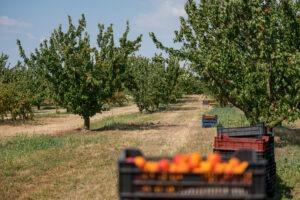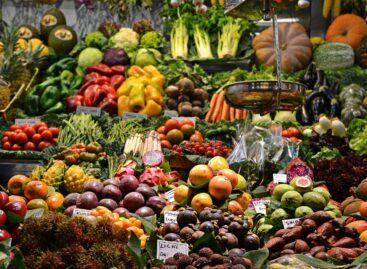There is a need to reorganize production on domestic apricot plantations
This year, spring frosts caused serious damage to domestic apricot plantations. The market would have a great demand for the fruit, therefore, in the interests of crop security and the economy of production, a comprehensive, professionally sound reorganization of domestic fruit production is needed in the future. In terms of variety selection, it is crucial that apricot varieties that have been adapted to the domestic climate through several years of testing should be put into commercial production. In order to improve production, NAK and MATE will launch a comprehensive research and development project in cooperation with producers this year.
 Although spring frosts have caused serious headaches for domestic apricot growers in recent years, this year the plantations suffered such severe damage due to the prolonged cooling and frosty period during the spring flowering period that 70-95 percent of the crop was destroyed. The frost did not only hit our country – the spring cooling also caused significant damage in the most important apricot-growing countries in Europe – but the extent of the frost’s impact is the greatest here. There are several reasons for this: in addition to weather anomalies, a fundamental problem is that the majority of our domestic apricot plantations are located in areas that are ecologically less suitable for apricots or unsuitable for planting.
Although spring frosts have caused serious headaches for domestic apricot growers in recent years, this year the plantations suffered such severe damage due to the prolonged cooling and frosty period during the spring flowering period that 70-95 percent of the crop was destroyed. The frost did not only hit our country – the spring cooling also caused significant damage in the most important apricot-growing countries in Europe – but the extent of the frost’s impact is the greatest here. There are several reasons for this: in addition to weather anomalies, a fundamental problem is that the majority of our domestic apricot plantations are located in areas that are ecologically less suitable for apricots or unsuitable for planting.
Apricots are grown on approximately 5,000 hectares in our country, with the most important growing regions concentrated in Pest and Bács-Kiskun counties, as well as in Borsod-Abaúj-Zemplén (1,100 hectares), Somogy and Tolna counties, but there are also significant plantations in Fejér county. However, due to the drastic frost damage that occurred in recent years, the previously initiated expansion of the production area has stopped; Between 2013 and 2020, the area of plantations increased from 4,000 hectares to 5,700.
Due to severe frost damage occurring year after year, the annual yield shows significant variation. While before 2018, the harvested quantity ranged between 20 and 35 thousand tons depending on the vintage, in 2023 only 6-8 thousand tons of apricots were produced in the country.
Related news
EU poultry meat rules are changing: the 12-week limit for “free-range” labeling is being relaxed during a pandemic
🎧 Hallgasd a cikket: Lejátszás Szünet Folytatás Leállítás Nyelv: Auto…
Read more >Not a turnaround, but consolidation: an agricultural outlook for 2026
🎧 Hallgasd a cikket: Lejátszás Szünet Folytatás Leállítás Nyelv: Auto…
Read more >Fruit prices in Serbia rose significantly in 2025
🎧 Hallgasd a cikket: Lejátszás Szünet Folytatás Leállítás Nyelv: Auto…
Read more >Related news
Festival buzz at the 60th anniversary EuroShop trade fair
🎧 Hallgasd a cikket: Lejátszás Szünet Folytatás Leállítás Nyelv: Auto…
Read more >Historic price reduction at ALDI
🎧 Hallgasd a cikket: Lejátszás Szünet Folytatás Leállítás Nyelv: Auto…
Read more >








